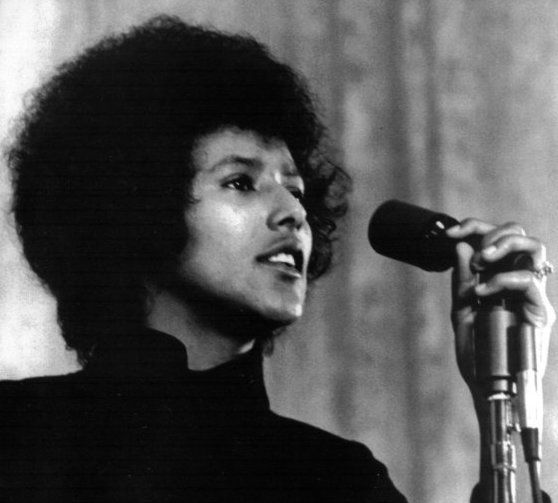28 Days Is Not Enough: The History of Black People in North America
- Natalie Dragota
- Feb 28, 2019
- 7 min read

February is definitely a month that elicits all types of feelings and emotions. Whether its Valentine's Day, or the Strawberry Ceremony, or the fact it is Black History Month; all of these important dates remind us of the unity in all of us and the importance of love, paying tribute to those who have been lost, and remembering but not repeating certain dark elements of Western history.
The concept of Black History Month was first proposed in 1926 by an African-American historian named Carter G. Woodson, who thought it was important to dedicate a time to increase the awareness of Black History in America and to celebrate the accomplishments of African Americans. At this time, it was referred to as "Negro History Week". It was renamed in 1970 to "Black History Week", and then expanded to "Black History Month" in 1976. However, it wasn't until 1995 that the Canadian Government formally and Nationally introduced it as "Black History Month", following the first Black Canadian woman being appointed to Canadian Parliament, Jean Augustine.
Black History month is important and will continue to be relevant until we see an eradication of racism and discrimination in society today. We still observe systemic racism towards Black people today and other marginalized populations. In 2016, we watched as an openly racist and bigot man got elected to power, as President of the United States. Consequently, we have also seen hateful people come out into the light, and increase in racist and discriminatory acts of hatred.
Let us just say, that now more than ever, is an important time to recognize Black History month and continue to encourage others to educate themselves on Black History and impacts of historical trauma.
Allow us to do a concise review of the history of slavery in America as well as take the time to recognize some influential black Americans and Canadians:
Apparently, slavery started in 1619, when 20 African slaves were brought to Jamestown, Virginia. However, other sources describe slavery starting in the early 15th century, and claim that it is slaves that made America into an economic powerhouse, through the harvesting of crops such as cotton, sugar cane, tobacco, etc. Aside from farming, slaves were used for pretty much everything else including cooking, cleaning, building, weaving, raising other peoples' children, etc. Strangely enough, with all of these responsibilities, slaves were considered property and not people, and were thus treated inhumanely and abusively.
Families were separated, human beings were sold, beaten, sexually abused, tortured, segregated, starved, etc.

Even after the abolition of slavery, Blacks continued to live in a system of social segregation and injustice for decades, where they were still not allowed to do basic every day things alongside white people. There were Black only seating arrangements, bathrooms, restaurants, etc.

On December 1st, 1955, in Montgomery, Alabama, Rosa Parks prompted the Civil Rights movement when all of the bus seats for whites were taken and she refused to give up her seat to a white man. The Black community thought back in anger, after she was thrown off the bus, charged and fined for breaking the city's segregation laws.

As mass protests broke-out every where across the country and the Black communities began showing more resistance against racial oppression, they bean boycotting the buses. The boycott supporters then appointed Baptist Minister Martin Luther King, Jr., as the head of the Montgomery Improvement Association, but he would soon later be known as the country ’s most influential advocate of the concepts of nonviolent resistance and Civil Rights.
1963 - M.L.K. delivered his famous and very inspirational, "I have a dream" speech, and if you have not yet heard it, I strongly recommend you listen to it below.
1968 - M.L.K. is assassinated
Since 1992, countless things have occurred in society that remind us of the still present and not-so-distant unfair treatment of Black people. I think that the biggest mistake we can make when thinking about the Civil Rights movement, is thinking that it is over. The conditions of today's society may not be as harsh as they were before for marginalized populations, but Blacks today still face racism, police brutality, oppression, etc.
Let us take a moment, to respect the work and resilience of those who fought for their rights and freedom during the Civil Rights Movement. As there were and are so many individuals who are so influential, naming each and every one of them, would be close to impossible. Below, are three more portraits of some very influential members of the Civil Rights movement.
Elaine Brown- Former Black Panther leader, writer, singer, etc
Malcolm X- minister, human rights activist and prominent black nationalist leader
AA Phillip Rudolph- Head of the Brotherhood of Sleeping Car Porters, and an equally prominent labour and civil rights activist, Randolph played a central role in Project C and the March on Washington
As another February passes us by, let us all take some time to fully understand what we spent the last month celebrating. We remember the heroes that fought for freedom. We celebrate the artists that touched our souls. Most of all, by looking back, we can recognize the actions that we all need to take in order to ensure we continue to work towards a society that is racially equitable. Don't wait until February 1st, 2020, everyone's history should be told all year long.

















